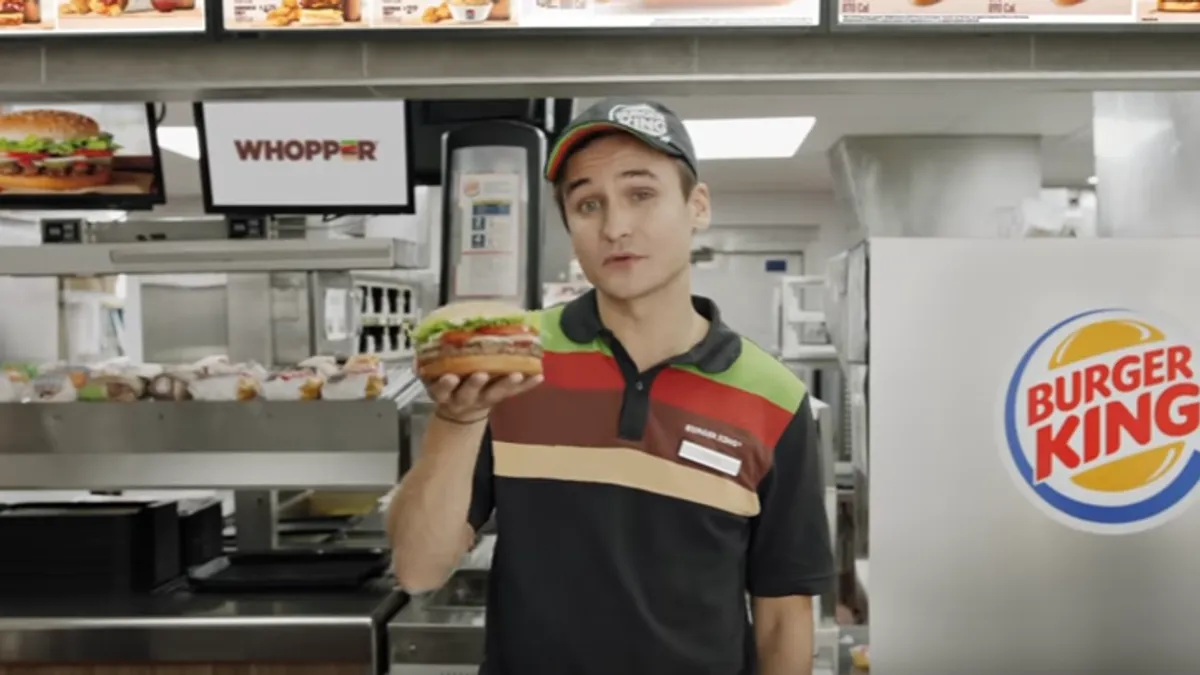Dive Brief:
- Burger King released a TV spot designed to automatically activate Google Home devices and Android smartphones with the trigger phrase, “Okay Google, what is the Whopper burger?" Google's Assistant would then read the first lines from the signature menu item's Wikipedia entry.
- The ad's functionality appears to have been shut off by Google almost immediately after debuting, per The Verge. According to Burger King, the 15-second "Connected Whopper" TV spot was the first of its kind to be extended by Google Home interactivity, although there was clearly some lack of communication between the two companies.
- In separate Google Assistant news, Strategy Analytics forecasts that it will surpass Amazon's Alexa in terms of usage by 2022 through advantages in search, machine learning and scale, per a press release.
Dive Insight:
Marketers are excited about connecting with consumers in new ways through the wave of voice-first IoT devices now available like Google Home, but Burger King's ad serves as a pointed lesson in how not to do this.
Not only was the spot unduly intrusive, seizing control of users' devices without permission, The Verge also noted that the Whopper Wikipedia entry was quickly edited by trolls to include lines to be read like that the burger is "cancer-causing." Google likely shut down the ad to avoid frustrated users on its own end, but it might've saved Burger King from a PR nightmare akin to Microsoft's tone-deaf "Tay" fiasco from last year.
Google has already felt the sting of Home serving unwanted promotions and learned Burger King's lesson the hard way. In March, the device began telling users that Disney's "Beauty and the Beast" was coming to theaters when they asked what their day was going to look like. Google insisted the plug wasn't an advertisement, but backlash on social media was swift and the company quickly issued a statement to make amends.
"This wasn’t intended to be an ad," a company spokesperson said at the time. "We’re continuing to experiment with new ways to surface unique content for users and we could have done better in this case."














